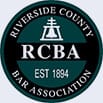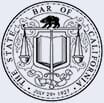Las Vegas Employment Law Attorney
Home / Employment Law – Employer
Las Vegas Employment Law Defense Lawyer
Practice Area

Common Employment Law Cases
Employment law is a highly litigated legal area. These laws are numerous and incredibly varied for different types of employers and employees. Common employment law cases often include:
Workplace Discrimination
Both state and federal laws have employee protections that prevent discrimination based on protected characteristics, such as:
- Race
- Sex
- Gender
- Disability
- Ethnicity
- Religion
- Age
It is illegal to discriminate against an employee based on a protected class. This discrimination protection extends to treatment in the workplace, hiring decisions, and termination decisions. An employer can be held liable for workplace discrimination when any part of their actions or policies are based on a discriminatory bias.
Hostile Workplace Harassment
A hostile workplace harassment claim is the repeated or severe actions of mistreatment, abuse, or harassment in the workplace. If an employer is responsible for these actions, they can be held liable. If the actions are done by a co-worker or co-workers, and an employer knows about these issues and fails to reasonably address them, they can also be held liable. As an employer, it’s important to know what policies need to be in place to ensure a safe workplace.
Sexual Harassment
Sexual harassment in the workplace is very serious. Both co-workers and those in positions of power, like employers and managers, can conduct illegal actions. If an employer commits these actions or fails to act on employee complaints, they can be held liable. Sexual harassment includes unwanted sexual advances, requests for sexual acts, or demeaning and explicit comments.
Retaliation
An employee may take a legally protected action, such as:
- Filing for workers’ compensation
- Filing a discrimination or harassment complaint
- Whistleblowing
It is illegal for an employer to retaliate against the employee for these actions. Retaliation includes adverse employment actions such as:
- Reducing hours, benefits, or pay
- Harassment
- Wrongful termination
Family and Medical Leave Act Violations
The Family and Medical Leave Act (FMLA) is a federal law that provides employees with job-protected and unpaid leave in certain circumstances. This is limited to a certain number of weeks per year for qualified employees. Employers who don’t allow for this leave, or retaliate against employees for taking leave, are acting illegally. However, though leave is job-protected, this may mean that the employee returns to a similar position rather than the exact same position.
Wage and Hour Violations
It is the responsibility of an employer to ensure that employees are properly classified and are receiving the wages that they are owed. Wage and hour violations are unfortunately common in employment law cases. These violations include:
- Failing to pay overtime pay
- Not paying the minimum wage
- Not allowing employees to take their mandated breaks
- Misclassifying employees to avoid providing them with these and other benefits
Workplace Injury Compensation
If an employer fails to keep their worksite safe for employees, accidents and injuries can occur. This includes fixing damages, maintaining equipment, and providing safety gear when necessary. Although most workplace injury claims are done through workers’ compensation insurance, there are instances where claims can be made directly against an employer.
Wrongful Termination
Nevada is an at-will employment and termination state. This means that employers and employees can end the employment relationship at any time for almost any reason. However, an employer may not terminate an employee for an illegal reason. Wrongful termination occurs when:
- An employer fires an employee based on discrimination.
- An employer terminates an employee in retaliation.
- The firing is against the employment contract provided.
Contractual Disputes
Employment contracts, when they exist, are an important part of employment law. Labor claims may come from contracts that have been violated. Employment contracts may include severance pay, wage and hour requirements, and other rights.
Benefits of Working With an Employment Defense Lawyer
Handling an employee labor law claim can be hard, on top of everyday business management. If you are facing a claim, you need an employment attorney who can manage this issue with significant legal experience.
An employment attorney can benefit your case in many ways, including:
- Protecting Your Rights: Employers have rights that must be protected. When employees are exercising their rights, an employment attorney can look out for the interests and rights of a business. A fair resolution to a labor law claim is important for both employers and employees.
- Experience With Labor Laws: Employment law is complex. Employment attorneys have worked for years in this area and have experience with complex and difficult employment cases. Although this may be a first-time experience for you as an employer, a lawyer has years of knowledge to draw from. They also have the resources to handle a case while protecting your company from as much impact as possible.
- Effective Negotiation: Some employment cases can be settled through negotiation. In labor cases, the other party may not want to negotiate. An employment attorney has exceptional negotiation skills that can be useful whether a settlement can be reached or not. These negotiating skills can provide your company with the most beneficial outcome to the employment case in a settlement or in court.
An effective and skilled attorney can protect your company and make a difference between lengthy legal proceedings and a swift, favorable decision.
Ensuring Regulatory Compliance
An employment lawyer can also help when you are not facing employment claims. An attorney can ensure that regulation and compliance are followed to prevent future litigation. This may include reviewing and drafting employment contracts, ensuring that worker rights are upheld, and reviewing background checks to ensure that employees aren’t a liability risk.
What Are the Rights of Workers in Nevada?
All Nevada employees have the right to:
- Fair compensation
- A safe workplace and work environment
- Workers’ compensation if they are injured while working
- A workplace free of discrimination
- Medical and family leave
- Medical benefits
Employees are also entitled to any rights in their employment contract.
What Are the Termination Rules in Nevada?
Because Nevada is an at-will employment state, employers can fire employees for almost any reason at any time. They do not have to justify a termination with poor work performance. However, an employer cannot terminate an employee for illegal reasons. These include:
- Discriminatory bias based on a protected characteristic
- Retaliation against an employee who exercises a legal worker’s right
- Harassment or abusive behavior
- Violation of an employment contract
If an employee makes a claim for wrongful termination, it must be based on one of these illegal reasons.
How Long Does an Employer Have to Pay Employees After Termination in Nevada?
Private employers must provide employees with their final paycheck within a certain amount of time after termination or resignation.
When an employee is discharged, fired, or laid off in Las Vegas, Nevada, the deadline for their final paycheck is immediately. Any and all wages earned that are unpaid must be paid immediately.
When an employee resigns or quits, all wages must be paid on either:
- The day when the employee would have usually received wages
- Seven days after the employee resigns or quits
Whichever event happens sooner is when an employee should receive their compensation. An employer has failed to pay their employee if they do not provide their compensation on:
- The day it is due when an employee quits or resigns
- Three days after compensation was due to a discharged employee
When an employer fails to pay, the employee’s wages continue for each day without their final paycheck for up to 30 days of pay. There are also state administrative fees. If an employee avoids a final paycheck, they do not have to be paid for the time when they avoid or refuse to accept compensation.
Contact Lobb & Plewe for Help
Your company can benefit significantly from legal representation and the support of skilled employment lawyers in Las Vegas. At Lobb & Plewe, we want to ensure that you know the laws and regulations and protect your business from liability. Let us protect your rights in an employment claim. Contact our team today to see how we can aid your business.
Corona Practice Areas
Our Attorneys
Let's Connect
- 951-788-9410
-
4160 Temescal Canyon Rd.
Suite 202
Corona, CA 92883
Newsletter

















